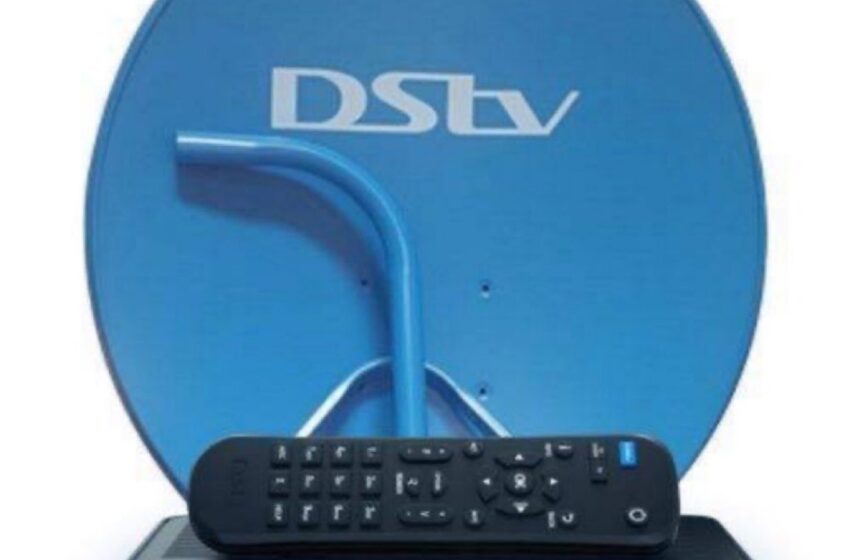MultiChoice 50% price cuts: Has Satellite TV era come to an end?

Multichoice Nigeria faces a major regulatory storm as it grapples with a ₦766m data privacy fine amid dwindling subscriber numbers and rising consumer discontent.
For decades, satellite television was the undisputed king of home entertainment, beaming a dazzling array of channels into living rooms across the globe. In Africa, MultiChoice, the parent company of DStv and GOtv, reigned supreme, delivering sports, movies, and local content to millions. But the tides are turning, recent moves by MultiChoice to slash DStv decoder prices by 50% in Nigeria, coupled with research highlighting the dominance of streaming platforms, have raised a question: Is the era of satellite TV over?
News of the 50% decoder price cut in Nigeria
On June 25th, 2025, MultiChoice Nigeria announced a bold move to halve the price of its DStv decoders, a campaign dubbed “We Got You.” The initiative, aimed at retaining a large subscriber base, comes on the heels of a reported loss of 1.4 million subscribers in Nigeria over two years, with 243,000 departing between April and September 2024 alone. The company’s flagship Premium package, priced at ₦44,500 monthly, has become a tough sell in a country grappling with inflation, especially when compared to streaming alternatives like Netflix (₦2,500–₦8,500) or Showmax (₦1,600–₦3,500).
However, these efforts may be a case of too little, too late. Posts on social media show increased doubt. Many have viewed satellite TV as a thing of the past, preferring streaming platforms like Netflix, but they need to trim the fat and lower prices. Others simply note that there’s nothing MultiChoice can do as the era of cable TV has come to an end, there’s nothing attractive about [DStv’s] content that isn’t streaming for free elsewhere.”
RELATED STORIES
DSTV announces sports-only package launch amid subscriber losses
From over N15k to N12k — how MultiChoice reversed DStv, Gotv prices after backlash
How streaming services became the new order
The writing is on the wall, and it’s in high definition. In May 2025, Nielsen reported that streaming services surpassed cable and broadcast TV combined in the United States, capturing 44.8% of total TV usage, a historic milestone. Globally, pay-TV subscribers dropped by 20 million between 2021 and 2023, from 1.01 billion to 985 million, with price cited as the top reason for cord-cutting.
In Africa, MultiChoice’s own streaming platforms, DStv Stream and Showmax, are outpacing its satellite business. DStv Stream subscribers grew by 38%, with revenues soaring 48%, thanks to lower prices and improved user experience. For instance, in South Africa a 12-month DStv Stream Premium contract costs R699/month, 26% cheaper than its satellite equivalent at R949/month. Showmax, relaunched with a joint venture with Comcast’s NBCUniversal, saw a 44% subscriber increase, though losses widened due to market exits outside Africa.
Globally, streaming giants like Netflix, Amazon Prime, and YouTube are reshaping consumption habits. YouTube alone, with over $50 billion in revenue from ads and subscriptions last year, is pivoting to resemble premium streaming platforms like Disney+, Hulu, and HBO. Even traditional satellite providers like DirecTV in the US have shifted focus to streaming, relegating dish-enabled plans to rural areas without high-speed internet.
Why satellite TV Is failing
The decline of satellite TV isn’t just about price, neither is it all about economic situations. Structural changes in the media industry has made its fall possible: piracy, social media, and the convenience of on-demand content, have limited its dominance. MultiChoice’s subscriber losses are compounded by macroeconomic pressures and frequent price hikes, with DStv and GOtv bouquets increasing three times in 12 months through 2024.
Satellite TV’s rigid model also struggles to compete with streaming’s flexibility. With cable, you turned on the TV and flipped through channels, you don’t have to manage multiple subscriptions or worry about internet speed.” Yet, that simplicity comes at a cost, literally. Consumers now regret at paying for channels they don’t watch, and demand lower price range and personnel.
Streaming, by contrast, offers tailored experiences. MultiChoice’s own sports-only package in Nigeria, catering to fans of the Premier League and UEFA Champions League, acknowledges this shift. But even sports, a traditional TV stronghold, faces competition from platforms like YouTube TV, which stream live events without a dish.
RELATED STORIES
Ginny & Georgia: Why everyone must watch Netflix’s best psychology thriller
Can MultiChoice still survive?
MultiChoice isn’t standing still. Its R2 billion cost-cutting target by FY 2026 aims to restore profitability, while investments in DStv Internet, a fixed-wireless LTE service with 45% subscriber growth and 85% revenue increase, signal a broadband play. The looming acquisition by Canal+ could provide strategic synergies, and while Showmax’s losses are high, its subscriber gains suggest potential.
Yet, challenges persist. Streaming fatigue, driven by choice overload and rising costs, is pushing consumers toward ad-based models or platform bundles. MultiChoice faces fierce competition from global players like Netflix and Amazon Prime, which offer cheaper plans and exclusive content. Piracy remains a persistent threat, due to difficult economic situation.
Conclusion
The era of satellite TV hasn’t ended, but it’s on life support. MultiChoice’s decoder price cuts and streaming pivot reflect a desperate bid to stay relevant in a world where algorithms and on-demand menus reign supreme. Research and consumer sentiment confirm the rise of streaming platforms, with Nielsen’s data marking a turning point. For MultiChoice, survival hinges on embracing this digital shift while addressing affordability and content exclusivity. Satellite TV may still be suitable especially in rural areas, and for sports fans, or older viewers, but its days as the dominant source of entertainment are numbered. To close the curtain on the piece, streaming has come to the table, and those fire sticks too. The future is online, and MultiChoice must stream or sink.

